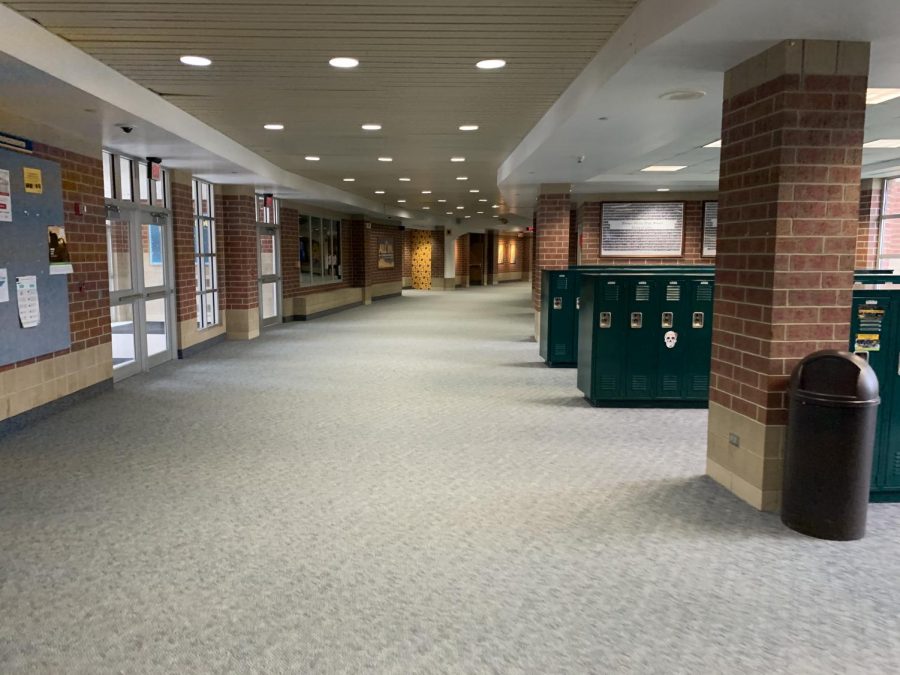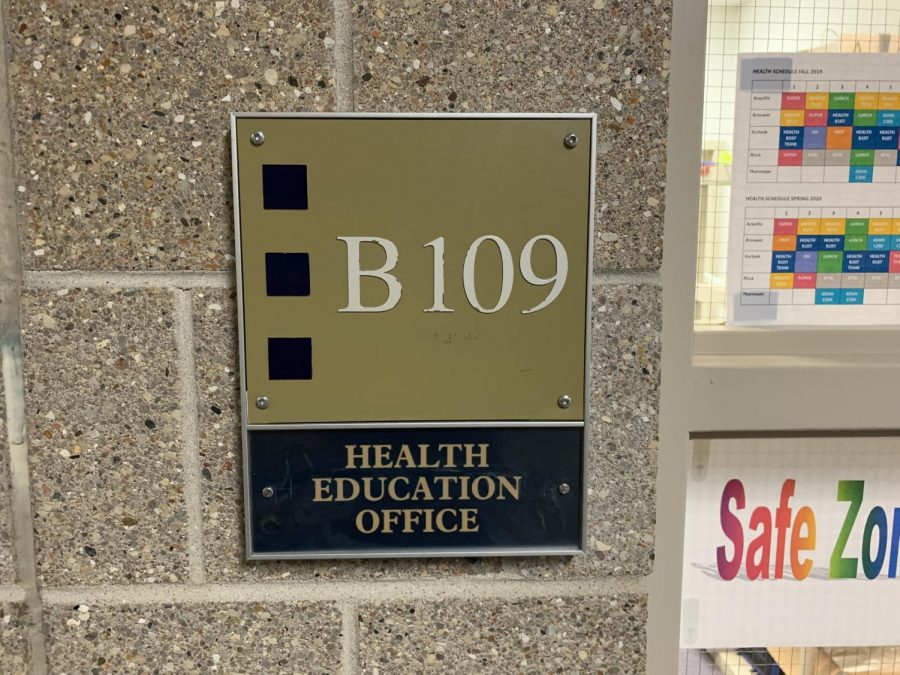Illinois’ new laws and their effects on Neuqua
The hallways of Neuqua Valley where the students’ safety is the first priority.
February 11, 2020
Illinois’ new requirement to include consent in sex education
Illinois released a new requirement for all schools to teach consent within their sex education curriculum. This has been in action since January 1st, 2020 and it will provide more awareness and misconceptions of consent. New topics can include how alcohol affects the meaning of consent and the value of consent. Although this may change many health programs in high schools across the state, for Neuqua the topic of consent is nothing new.
Dave Brouwer, the advanced health and sophomore health teacher at Neuqua, touched upon the importance of teaching consent in high schools. When it comes to consent, not every school in the state has the same curriculum and may even not teach consent. Brouwer talks about the difference in sex education and stated the vast difference in what is taught when he says that not even “10 years ago, [some schools in] Oswego weren’t allowed to talk about anything but abstinence”. There is a very positive effect that opens new doors by having the requirement of schools talking about consent. Brouwer explains that talking about a tough topic will bring importance to the forefront”. He further believes that “we need to teach young [men and women] that when someone says “no” that’s not an invitation for them to be convinced to say “yes”. Consent is more about “no means no,” too. It also means that we are teaching people about “respect of people’s personal, private, and sexual boundaries.” .
Although the new law may not affect Neuqua directly, it allows other states to talk about a topic that has been misconceived information for years. Brouwer finished with his gratefulness that “our district does a good job of covering what needs to be covered” and that this is the final push to have everyone talk about a topic that is so prevalent in society now.
Action being taken against threats towards Neuqua and high schools
A new policy is being introduced to schools in Illinois this year, with Neuqua Valley being included. It involves harsher punishment to be placed on high school kids for threats against the school. Unlike the counterparts in this article, this policy is not specifically a new law. Giving harsher punishments for a threat is not the same every single time because it depends on the credibility and the fallout of said threat.
According to Officer Fulkerson, the Neuqua Valley School Resource Officer, a threat “could be as low as a misdemeanor charge” or a “felony charge”. A misdemeanor is a year or less in prison, while a felony charge would result in more than one year in prison. It all depends on the severity and the credibility of the threat. This new policy is less of a law than it is an enforcement. Instead, “prosecutors… are taking [threats] way more seriously and prosecuting them way more seriously”. The people who made the decision hope this will lead to less threats overall for the school. This was partly due to the bomb threat back in October 2018 and the misunderstanding at Red Carpet Rally 2019. The day before the Red Carpet Rally, a student posted that tomorrow would be ‘blast day’ in reference to the trombone’s act, but that was misinterpreted to be a threat, causing school-wide panic. Threats like this, if credible, or if done purposefully, would receive a harsher punishment due to their effect on the school day. This is a push toward safer schools for everyone as threats have been an ongoing issue across the school district and country.
Recreational marijuana is now legalized in Illinois
With the new year bringing new laws, recreational marijuana has been brought to the forefront of several conversations. The usage of marijuana is not a new concept since medicinal marijuana has been prescribed for patients with varying medical issues for many years. However, with this new law, many question what it’s intended use is and where and when it is able to be used.
According to illinoispolicy.org, recreational marijuana has several specific rules as to who, when, and where individuals can consume this drug. It is illegal for anyone under the age of 21 to possess or use marijuana without a doctor’s prescription. The new law says the places banned from use are “any public place, such as streets or parks, in any motor vehicle, on school grounds, with the exception of medical users, near someone under the age of 21, [or] near an on-duty school bus driver, police officer, firefighter or corrections officer.”
This law does not affect high schoolers since it is illegal for them to consume due to their age. District 204 has a strict policy against consuming any non-prescribed drugs on school property. It does, however, raise the question about medicinal marijuana and its usage within schools.
Jennifer Kolb, a nurse at Neuqua’s main building, commented on the district’s policy about medicinal marijuana. The district has made sure to set strict guidelines regarding medication, but as of right now District 204, “ has a policy, right now, where there would be no reason now why we would administer it.” She further went on to say that, “It may be something that if a student is prescribed it with their family members and doctor at home, it wouldn’t be one of their medicines that they would need at school. And if they were feeling like they needed it, they would probably be at home to use it.” If a student were to be prescribed this medication, she said it would most likely be to help alleviate nausea (from something like chemotherapy), anxiety, or seizures. Her main message, though, was that it is all determined on a case-by-case basis and it should only be used as intended by a medical professional.
A similar message was echoed by assistant principal Sharon Ruff. She said that as of right now, there are no cases at Neuqua where a student has been prescribed this medication. However, if a student were to need it, “ there is a partnership with the nurse, the administrative office, and the district. So it’s kind of like a community partnership where we sit down, have a conversation, look at the doctor’s notes, and go through the process of how a student will obtain their medicine.” She commented that administering medicinal marijuana would be similar to any medication given in the nurse’s office. Ruff said it serves a purpose like any other medication because, “the purpose isn’t for them to be under an influence where they are incapable of learning and being engaged in instruction.”
Even though the state of Illinois has passed a new law that legalizes recreational marijuana, the only place it is allowed on school grounds is through a prescription kept in the nurse’s office. No student is allowed to have it on them for any purpose. Being caught either under the influence or with marijuana will result in repercussions decided by the school.



